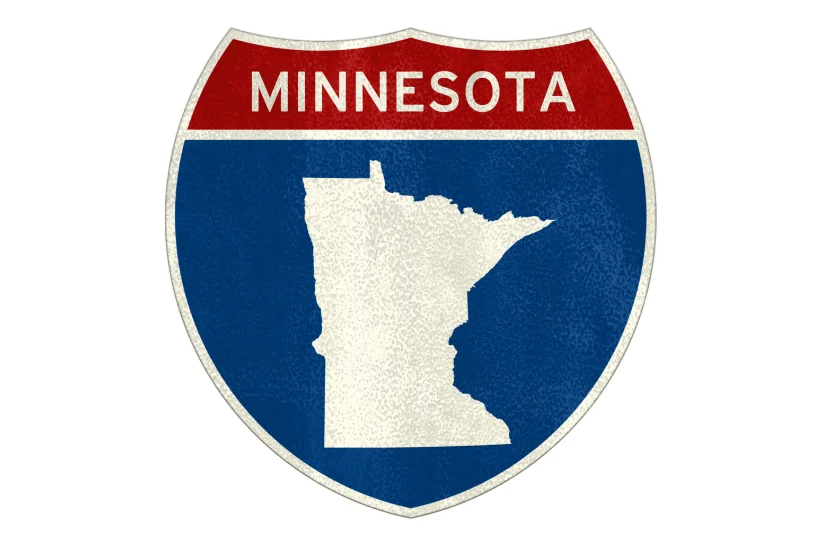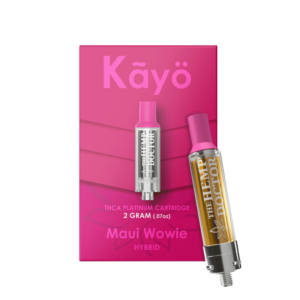
Minnesota recently legalized adult-use marijuana after Governor Walz signed HF100 into law in 2023. Medical cannabis has been legal in the state since 2014 but is only limited to oils, capsules, and non-smokeable products.
The home of 10,000 lakes started rolling out dispensary licenses in 2024 up until August. So, if you’re only reading this now, you’ve narrowly missed the Minnesota licensing application period. It’s still good news, though. You can use this step-by-step guide as training wheels for the state’s next round of license roll-out.
If you’re ready to learn more about the licensing process, keep reading to unravel Minnesota’s updated and complete dispensary licensing online application process.
Medical Cannabis
Yes
Recreational Cannabis
Yes
Hemp-Derived
Yes
License Application
Not Until 2025
Step 1: Create A Business Entity
Business owners start by acquiring their store’s business entity because it’s their universal ticket for applying to several agencies, like getting that license or securing a lease.
In Minnesota, you need to create a business entity with the state and register your planned cannabis business with the Minnesota Office of Cannabis Management.
Accomplish both tasks with the help of a lawyer or agency. Creating an LLC or corporation can be quite taxing and needs a legal expert to guide you and give you an advantage.
Step 2: Draft A Business Plan
Starting a cannabis business involves several moving parts. Draft a business plan immediately to set the foundation of your dispensary. This important document is also a prerequisite for applying for a license to the MN Office of Cannabis Management (OCM).
In general, a cannabis business plan includes the following information:
- Dispensary’s physical location
- Source of capital
- Financial plan
- Inventory suppliers
- Revenue projections
- Organizational chart
- Operations plan
- Training plan
- Marketing strategies
- Security Plan
Meanwhile, here are the required sections the state of Minnesota wants to see in your business plan:
- Financial and tax records
- Cannabis product disposal and loss documentation
- Equity and diversity plans
Step 3: Find Your Business Location
If you’ve previously dabbled into business before, you know how important a location is for success. The same is true for dispensaries.
The kicker is not all cities and locations in Minnesota allow dispensaries. Local municipalities can temporarily restrict recreational cannabis sales until January 1, 2025. Also, local governments can limit the number of dispensaries to one for every 12,500 people living within the jurisdiction.
As you try to find that single location, you may also want to be alerted to different zoning laws, such as not choosing a location that is:
- 1000 feet of an educational institution
- 500 feet of a daycare
- 500 feet of a treatment facility
- 500 feet of an attraction frequented by minors
| 📝 Take Note A cannabis retailer is allowed to open a maximum of five cannabis retail stores within Minnesota-based locations where it’s not banned to establish a dispensary. |
Step 4: Secure The Financial Side of Things
Putting up a dispensary can be expensive. In the US, you need to initially have around $775,000 to open a mid-sized regulated dispensary. The cost varies across states and depending on how large the business is. Here are some of the costs you’ll encounter in running a cannabis shop:
- Licensing and legal fees
- Real estate
- Banking fees
- Equipment and inventory
- Inventory
- Security
- Insurance
- Staff Salary
- Marketing
You don’t have to come from generation wealth to afford a dispensary to your name. There are funding strategies that you can use to collect money and kickstart your dream business. Here are some of the things cannabis business owners do to secure funding.
- Self-funding: The money that you already have.
- Familial: Funding coming from your family, relatives, or friends.
- Partners: Individuals who can help financially but have a stake in the company.
- Loan: Loans from banks and financial institutions.
- Private funds: Angel investors, Venture Capital, or private equity.
- Crowdfunding: Funding coming from the masses. Examples of crowdfunding online platforms are Arcview Capital, Enexis, and Budbo.
- Brokers: Brokerage companies like FundCanna.
- State fundings: Capital coming from the Minnesota Cannabis Grant Programs
Step 5: Find Out if You Qualify for the Minnesota Social Equity Program
Qualifying for the Minnesota Social Equity Program is a great help in a way that your application is prioritized and you get to receive several other state-based perks. Here are the criteria for qualifying for a spot:
- Individuals previously convicted of possessing or selling cannabis.
- If you have a family member who has been convicted of possessing or selling cannabis.
- Service-disabled veterans, current or previous members of the National Guard, or any military veteran who lost their honorable status because of an offense involving possessing or selling cannabis.
- A resident for at least five years of a neighborhood that has experienced a disproportionately large force of cannabis enforcement.
- Emerging farmers.
- A resident of at least five years of census within high poverty rates.
Step 6: Apply for a Dispensary License in Minnesota
First, here is some basic information you need to know before applying for a license.
- You need a dispensary license to possess, sell, and deliver cannabis around Minnesota.
- The OCM is yet to release a comprehensive guideline on how the application process works for the new cannabis adult-use industry.
- Watch out for any updates about the licensing application process through this website: https://cannabis.mn.gov/
- The next round of applications will open in early 2025.
- If you plan to establish a small cannabis business, you may be eligible for a microbusiness license.
- You are eligible for the Minnesota social equity program if you’ve been previously affected by the war on drugs.
There are no official guidelines from the OCM yet, but this is what we know about the license application process.
1. Applicants need to fill out the prescribed forms completely. Personal details and documents like the following are needed:
- Name, address, and birthdate
- Management structure, ownership, and control
- Corporate documents, financial agreements, and any financial obligations
- Proof of trade name
- Copies of the partnership agreement
- Operating Agreement
- Shareholder agreement
- Bankruptcy history
- Address of the business
- General information about the physical location of the business
- Security plan
- Business plan
- Operating and investment accounts for the business
- Detailed information about the businesses’ funding sources
- Employee training and education plans
- Business policies supporting the Minnesota cannabis compliance
- Labor peace agreement
- Compliance Certification
- Agents for communication
- Proof of social equity eligibility, if applied
2. Completed applications are forwarded to local governments for building code and zoning compliance checks.
3. You and the key owners of the dispensary must undergo a criminal history check. For your part, you have to submit a consent form, fingerprints, and fees to the OCM. Your records will then be forwarded to the Bureau of Criminal Apprehension.
| 📝 Take Note You’re not automatically disqualified for certain violations like those under section 152.025 as long as you can soundly prove that you pose no risk of harm. |
4. Await the approval or rejection of your application within 90 days.
Step 7: Design the Interior of the Dispensary
When designing dispensary interiors, two things should be considered: the comfort of the customers/staff and the efficiency of the space for commercial transactions. Here are the sections to include in your plan:
- Accessibility of customers and employees to their areas
- Cashier’s area
- Product display area
- Parking space
- Entrance and exits
- Waiting rooms
- Comfort rooms
- Inventory storage
- Staff lounge
- Locker rooms
- Office
Minnesota has some non-negotiables for compliance that may affect how you plan your interior. Here’s a complete of these requirements:
- Systems in place for odor regulation.
- If a recreational dispensary is also selling medical cannabis, the medical section should be separate, complete with its own area and pharmacist consultations.
- Dispensaries cannot operate between 2:00 a.m. and 8:00 a.m. (Monday through Saturday) and 2:00 a.m. and 10:00 a.m. on Sunday.
- Adhere to regular state regulations regarding local building, fire, and zoning codes.
- Maintain a clean, sanitary, and pest-free space.
- Displace state-recommended notices, product recalls, warnings against driving intoxicated, and age restrictions.
- A designated retail area for product samples.
- All products not on display must be stored in a secure area.
Step 8: Staff Training and Operations Management
Hiring a solid staff is crucial in a dispensary. Staff members like budtenders should not only be well-versed in cannabis products but also trained in compliance, customer service, and sales techniques. Regular training sessions help keep staff informed about new products, laws, and best practices. So it’s best to enroll them in one.
Effective operations management strategies should also be implemented to enhance productivity. This includes scheduling, inventory management, and performance tracking. A driven but generally positive work culture can lead to lower turnover rates and better customer interactions.
Related Article
Step 9: Community Building and Engagement
Building a healthy relationship with the community is a hallmark of success in the local cannabis scene. Engaging in community events, supporting local causes, and fostering open communication can enhance your dispensary’s reputation.
Consider hosting educational workshops or sponsoring community events to raise awareness about responsible cannabis use.
Establishing a loyalty program can also encourage repeat business and strengthen customer relationships. Dispensary owners can cultivate a loyal customer base and increase brand recognition by prioritizing community engagement.
Related Article
Step 10: Understanding Risks and Liabilities
Understanding the risks and liabilities associated with operating a dispensary is critical. This includes potential legal ramifications, liability insurance considerations, and the impact of federal regulations on your business.
Clear policies and protocols help mitigate these risks and protect your business interests.
Additionally, it is vital to ensure comprehensive insurance coverage tailored to dispensary operations. This includes general liability, property, and product liability insurance.
Securing appropriate coverage can provide peace of mind and financial protection against unforeseen circumstances.
Looking for Inventory Suppliers?
Opening a dispensary involves navigating challenges and considerations. Not to mention researching for credible cannabis suppliers who won’t disappoint you. Cut your search short and go straight to The Hemp Doctor Wholesale. The guys you look for when in need of the following traits:
- Wide range of US-made hemp-derived products, from Delta 9 vapes, CBD oil, and Delta 8 edibles, to cannabis flower.
- Personalized customer care assistance.
- White-label option.
- State-sensitive when it comes to legal cannabis products and delivery services.
FAQs
What are the first steps to starting a dispensary?
The first steps include conducting market research to assess local demand, analyzing competitors, and understanding the legal requirements specific to your state.
What licenses do I need to open a dispensary?
You must obtain a state-specific dispensary license, which may require detailed documentation and adherence to compliance standards. Depending on zoning laws, local permits may also be necessary.
How can I ensure compliance in my dispensary?
Compliance requires staying informed about state and federal regulations, providing regular staff training, and maintaining accurate records. Consulting with legal experts can also provide valuable guidance.
What challenges might I face as a dispensary owner?
Challenges include navigating complex regulations, securing funding, managing public perception, and competition from established businesses. Engaging with the community can mitigate some of these challenges.
How important is community engagement for dispensaries?
Community engagement is vital for building a positive reputation and fostering customer loyalty. Participating in local events and educational initiatives can enhance public perception of your dispensary.







